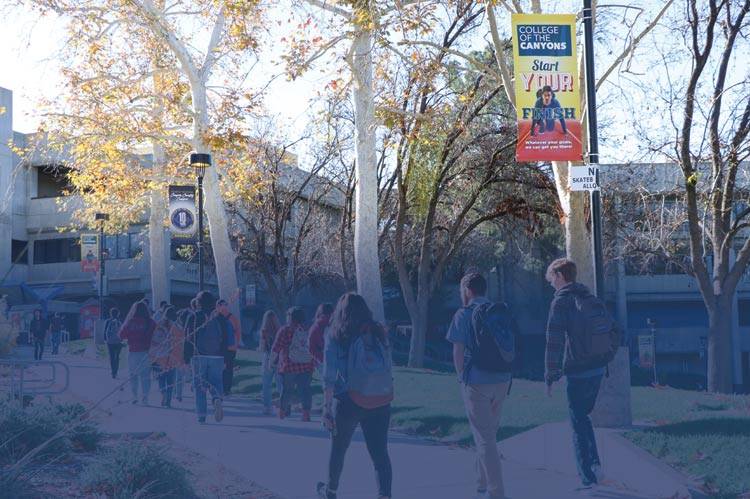Campus Safety Sexual Assault Key Definitions
Sexual assault occurs when physical sexual activity is engaged in without the consent of the other person, and includes, but is not limited to, rape, forced sodomy, forced oral copulation, rape by a foreign object, sexual battery, or threat of sexual assault.
Dating violence means violence committed by a person who is or has been in a social relationship of a romantic or intimate nature with the victim. The existence of a romantic or intimate relationship will be determined based on the length of the relationship, the type of relationship and the frequency of interaction between the persons involved in the relationship.
Domestic violence includes felony or misdemeanor crimes of violence committed by:
- a current or former spouse of the victim;
- a person with whom the victim shares a child in common;
- a person who is cohabitating with or has cohabitated with the victim as a spouse;
- a person similarly situated to a spouse of the victim under California law; or
- any other person against an adult or youth victim who is protected from that person's acts under California law.
Stalking means engaging in a course of conduct directed at a specific person that would cause a reasonable person to fear for his or her safety or the safety of others, or to suffer substantial emotional distress.
Examples of stalking include:
- Following
- Obsessive behavior
- Unwanted and/or excessive phone calls or other forms of communication
- Unwanted letters or messages
- Unwanted gifts or threatening gifts
- Damage to property
- Appearance at places of residence, school, work
- Threats to person, family, or friends
- Inappropriate confrontations and approaches
Physical or verbal abuse, including sexual assault, sexual harassment and stalking, or any threat of force or violence including flaming, bashing, bullying, sharking or any abusive, threatening, coercive, or hostile behavior, including online interaction, directed toward any member of the College, or members of his or her family, or a campus visitor, or any harassing or discriminatory behavior based on race, sex, sexual orientation, religion, age, national origin, disability, or any other status protected by law.
Sexual Assault may occur in the absence of Affirmative Consent.
Examples of abuse include:
- Physical abuse acts such as hitting, slapping, pushing, punching, kicking, and choking. It could involve using a weapon or object to threaten or hurt someone. It also includes throwing, smashing, or breaking personal items, and hurting or killing of pets.
- Sexual abuse involving pressuring or forcing someone to engage in nonconsensual sexual acts, including creating pictures or videos.
- Verbal abuse involving put downs, name calling, yelling or swearing, threatening tones, or abusive language.
- Emotional abuse involving ignoring someone or using looks or actions or speaking in ways that are frightening or threatening.
Affirmative consent means affirmative, conscious, and voluntary agreement to engage in sexual activity. It is the responsibility of each person involved in sexual activity to ensure that he or she has the affirmative consent of the other or others to engage in the sexual activity. Lack of protest or resistance does not mean consent, nor does silence mean consent. Affirmative consent must be ongoing throughout a sexual activity and can be revoked at any time. The existence of a dating relationship between the persons involved, or the fact of past sexual relations between them, should never by itself be assumed to be an indicator of consent. Sexual Assault may occur in the absence of Affirmative Consent.
Incapacitation is defined as the physical and/or mental inability to make informed, rational judgments. State of incapacitation include, but are not limited to, unconsciousness, sleep, and blackouts. Where alcohol or drugs are involved, incapacitation is defined with respect to how the alcohol or other drug consumed affects a person's decision-making capacity, awareness or consequences, and ability to make fully informed judgments. Being intoxicated by drugs or alcohol does not diminish one's responsibility to obtain consent. The factors to be considered when determining whether consent was given include whether the accused knew or whether a reasonable person should have known that the complainant was incapacitated.
The Role of Alcohol and Drugs
It is a criminal offense to engage in sexual acts with someone who has been using alcohol, drugs, or other intoxicants to the degree that he or she is unable to provide affirmative consent. This is true whether or not the person reporting the sex offense voluntarily consumed the alcohol, drug, or intoxicant.
Because alcohol, drugs, and other intoxicants are often involved in sex offense matters, complainants may be afraid to report sex offenses where they also have engaged in an activity that violated College policy, such as drinking on or at campus events, or underage drinking. The College does not hold complainants and/or witnesses accountable for alcohol-related Student Code of Conduct violations that may have occurred at the time of the sex offense.
The use of intoxicants by a student or employee accused of a sex offense does not excuse the offense.
Reporting Information
Contact Campus Safety
- Valencia Campus (661) 362-3229; or (661) 259-7800 main number at Valencia
- Canyon Country Campus (661) 362-3977; or (661) 362-3801 main number at Canyon Country
Emergency Contact to the switchboard can be completed by dialing 7 from any phone at the Valencia campus; and 77 from any phone at the Canyon Country campus.
In addition sex offenses may be reported to the following areas:
Vice President, Student Services
(661) 362-3498
Student Health and Wellness
(661) 362-3259
Human Resources
(661) 362-3427
Dean of Students
(661) 362-3260

 My Canyons
My Canyons  Canvas
Canvas 
